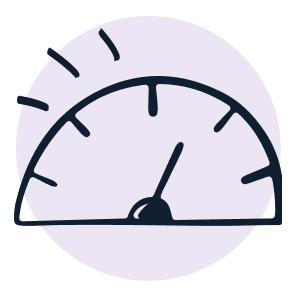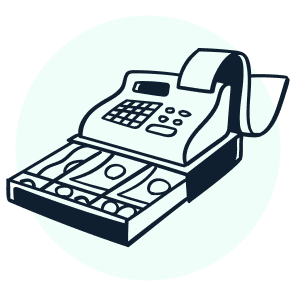Best Equipment Financing in December 2025
Equipment loans and leases can help you get essential equipment and machinery for your business. Financing options may be available for startups and businesses with bad credit.
Best equipment financing lenders: More details
Best for: Smaller businesses – iBusiness Funding
- Starting rate
- 22.45%
apr disclaimer
loan amount disc
test
credit score words
- Typically no effect on your personal credit score to apply
- Low minimum annual revenue requirement
- May require collateral, personal guarantee and/or a blanket lien
- Doesn’t offer specific equipment loans
If your business is established but doesn’t operate on a large enough scale to qualify with other lenders on this list, iBusiness Funding might be a good fit. You’ll need to be in operation for at least 24 months, but you’ll only need to make to meet the lender’s minimum annual revenue requirement.
Although the lender doesn’t offer specific equipment loans, you can borrow up to $500,000 with a term loan and use the funds for almost any business-related expense, including equipment repairs and purchases. However, you may need to provide collateral to secure the loan.
In order to qualify, you’ll need to meet iBusiness Funding’s criteria of:
- Minimum credit score: 640
- Minimum time in business: 24 months
- Minimum annual revenue:
Best for: Fast Funding – OnDeck
- Starting rate
- 31.30%
apr disclaimer
loan amount disc
time in business disclaimer
term disclaimer
credit score words
- Potential for same-day funding
- Shorter time in business requirement
- May require a personal guarantee
- Not available in North Dakota
If you need fast funds, OnDeck may be a good option. The company offers short-term business loans up to $250,000, with loans of $100,000 or less funding as soon as the same day you apply. Loans that do not qualify for same-day funding are typically still funded within two to three business days, which may allow you to purchase the equipment you need without delay.
That said, the lender’s interest rates are high compared to some of its competitors. Plus, the maximum borrowing limit is lower than other lenders on this list, so OnDeck may only be suitable for businesses in need of less expensive business equipment.
In order to qualify, you’ll need to meet OnDeck’s criteria of:
- Minimum credit score:
- Minimum time in business: 12 months
- Minimum annual revenue:
What is equipment financing?
Equipment financing is a business term loan that enables companies to purchase equipment needed to operate their businesses, such as computers, vehicles or large machinery.
An equipment loan is a type of asset-based financing, meaning the equipment generally acts as collateral in a secured business loan.
Types of equipment financing
There are a few different types of equipment financing to choose from.
True equipment financing allows you to finance the cost of buying the equipment outright, while equipment leasing allows you to contract use of the equipment for a set period of time. Newer businesses or those with short-term needs may also want to consider renting equipment, which is like a short-term version of leasing, with maintenance costs included in your contract.
Here’s a close look at the similarities and differences between the three:
| Equipment financing | Equipment leasing | Renting equipment | |
|---|---|---|---|
| Definition | The borrower finances the cost of buying the equipment outright. | The lessee signs a contract that gives them the right to use the equipment for a specified period of time. | The renter signs a contract that grants them the right to use the equipment for a period of time, which is usually shorter than with a lease. |
| Payment terms | Equipment loans cover the costs of equipment in exchange for periodic repayments over a specified term. | The borrower makes periodic payments to rent equipment over a specified term. | The borrower makes regular payments over a specified term that is usually shorter than with a lease. |
| Ownership | The borrower owns the equipment. | The lender owns the equipment but may give the lessee the option to buy it at the end of the lease term. | The lender owns the equipment, and the borrower must return it at the end of the rental term. |
| Down payment | Typically required. | Not typically required. | Not required. |
| Maintenance | The borrower is responsible for any maintenance on the equipment. | The lessee is responsible for any maintenance on the equipment. | The cost of maintenance is typically included in the rental contract. |
| Costs | Costs less in the long term. | Costs more in the long term. | Highest cost of all in the long term. |
| Depreciation | Typically tax deductible. | May be tax deductible depending on the lease type. | Typically tax deductible. |
- A capital lease allows you to rent equipment with the option to buy at the end of the lease term. On the downside, you can’t cancel a capital lease.
- An operating lease is similar to a conventional rental agreement: You make regular payments, but will never own the equipment. However, as the lessee, you can usually cancel the lease with adequate prior notice.
How to get equipment financing
To qualify for equipment financing, lenders will typically look at the following:

Personal credit score
Lenders will examine your personal credit score to determine eligibility. Many online lenders, including , have minimum credit score requirements in the 600s.

Time in business
Some lenders have a minimum time in business requirement of two years, but certain online lenders only require six months or less in operation. For example, has no minimum time in business requirements.

Annual revenue
Some lenders may require minimum annual revenues, which vary greatly. For example, iBusiness Funding requires , whereas .
Commonly required equipment financing documents
When applying for equipment financing, the lender may require the following:
- Equipment quote
- Recent bank statements
- Business plan
- Personal and business tax returns
- Personal credit score
- Driver’s license
Typically, yes — though it may narrow down your choice of lenders if you’re importing equipment directly.
If you’re purchasing equipment that has already been imported, for instance, if you’re buying from a U.S. dealership or website, you won’t be directly responsible for paying tariffs. You’ll pay the price listed by the dealer, which you can fully cover with a lender that offers 100% financing. But the cost of tariffs is often passed on to consumers in the form of higher prices, so the equipment can be more expensive if the company you’re purchasing from had to pay tariffs to make or buy it.
If you’re purchasing a piece of equipment directly from overseas, you can expect to be charged any applicable tariffs when it enters the country. Some lenders offer financing over 125%, which you may be able to use to cover the cost of tariffs. But you’ll need to check with your lender ahead of time and calculate exactly how much extra you’ll need before applying for a loan.
How to compare equipment financing
It’s important to shop around for equipment financing in order to ensure that you’re securing the best rate and terms available to you. Here’s a look at five factors to consider while weighing your options.
-
Interest rate
The interest rate you’re given can greatly impact your cost of borrowing and, as a rule of thumb, picking the loan with the lowest interest rate will help you save money. Business loan interest rates can vary greatly between lenders, so be sure to gather loan offers from multiple lenders before making your decision. -
Repayment term
Your equipment financing loan offers may come with different repayment terms. In general, longer repayment terms come with lower monthly payment amounts; meanwhile, shorter repayment terms cost more each month, but offer lower interest charges over the life of the loan. -
Funding time
Funding times can also vary between lenders. Some lenders offer same-day funding, while others can take a few days or weeks to complete a funding request. Do your best to choose a lender whose funding schedule suits your needs. -
Additional fees
Some lenders charge extra fees, like origination fees or prepayment penalties. Be sure to read the fine print of your loan agreement, so you’ll be prepared for any fees that come your way. -
Loan purpose
Some equipment financing loans come with restrictions on what you can buy with the funds. Check to ensure that the loan you choose is a match for your business type and intended purchase. If not, don’t be afraid to explore other options.
If a lender offers 100% financing, it means that they’ll lend you the amount it costs to purchase the equipment with no down payment, or 100% of the cost.
Some equipment loans require a down payment, decreasing the total amount you can receive for your equipment purchase. For example, if a lender requires a 20% down payment, that means they can only offer financing for up to 80% of your equipment costs.
Some lenders may go beyond 100%, offering additional funds to cover “soft costs,” which are equipment-related expenses like installation and shipping. For example, if a lender offers 125% financing on a $10,000 piece of equipment, that means you can borrow up to $2,500 for those soft costs.
Pros and cons of equipment financing
Pros
-
Fast funding
Online lenders offer fast equipment loans (typically within two business days). -
Interest rate
Since equipment loans are generally secured, you’ll benefit from comparatively lower business loan interest rates. -
Fixed payments
You can spread your cost over time with fixed payments.
Cons
-
Down payments
Equipment loans may require large down payments (typically 20%). -
Terms can exceed equipment functionality
Depending on the loan term, your equipment could become outdated or obsolete while you’re still making loan payments. -
Lien or personal guarantee
With equipment loans, lenders may require a lien and personal guarantee in addition to collateral.
Frequently asked questions
An equipment loan is designed to help you purchase or repair machinery and equipment for your business. In addition, you can use other types of small business loans to finance equipment.
Equipment loans generally require regular payments with accruing interest. Payment plans vary by lender and loan type, but can include daily, weekly, monthly, seasonal or deferred options.
No, leasing means you’re renting the equipment. With equipment financing, you’re borrowing money to buy the equipment outright.
Yes, some equipment lenders only require six months in business to qualify for equipment financing — and some don’t have any time-in-business requirements. This allows startups to finance any necessary equipment within their first year of business.
They can, but it depends on what the tariffs are and where you’re buying from. Although tariffs aren’t having a significant impact on loan interest rates as of the time of writing, they can potentially drive up the cost of foreign equipment and machinery.
Our methodology: How we chose the best equipment financing
We reviewed more than 25 lenders to determine the overall best 10 equipment financing loans. To make our list, lenders must meet the following criteria:
- Minimum time in business requirement of two years or less .
- Rates and terms: We prioritized lenders with more competitive starting fixed rates, fewer fees and greater options for repayment terms, loan amounts and APR discounts.
- Repayment experience: For starters, we consider each lender’s reputation and business practices. We also favor lenders that report to all major credit bureaus, offer reliable customer service and provide any unique perks to customers, like free wealth coaching.



